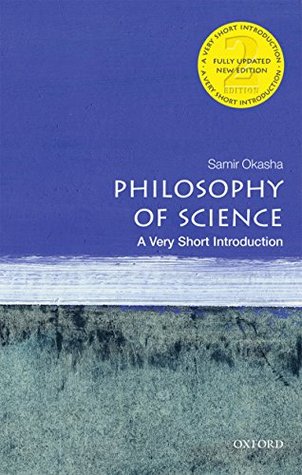Description
Philosophy of Science: Very Short Introduction (Kindle Edition)
Author: Samir Okasha
Publisher: Oxford University Press (2016)
160 pages
My rating: 4.2 of 5 stars
From the publisher: How much faith should we place in what scientists tell us? Is it possible for scientific knowledge to be fully ‘objective’? What, really, can be defined as science? In the second edition of this Very Short Introduction, Samir Okasha explores the main themes and theories of contemporary philosophy of science, and investigates fascinating, challenging questions such as these.
Starting at the very beginning, with a concise overview of the history of science, Okasha examines the nature of fundamental practices such as reasoning, causation, and explanation. Looking at scientific revolutions and the issue of scientific change, he asks whether there is a discernible pattern to the way scientific ideas change over time and discusses realist versus anti-realist attitudes towards science. He finishes by considering science today, and the social and ethical philosophical
questions surrounding modern science
Review
This is an excellent primer on the philosophy of science. For those who haven’t studied Philosophy of Science, this is the perfect place to start. Samir Okasha, who received his doctorate in 1998 from the University of Oxford, offers brief, clear explanations of the history of science and the interface between philosophy and science. The book first sets out to show the primary philosophical issues related to science. For example, it shows the connections between philosophy, biology, physics, and chemistry.
Okasha focuses on the famous philosopher of science Karl Popper, and his theory of falsification. Popper advanced the idea that all scientific conclusions should be falsifiable. This may be true of empirical conclusions but would not apply to non-empirical questions such as the existence of God, or the reality of Near-Death Experiences. Of course, Popper’s theory has its own limitations, as Okasha points out. Especially noteworthy is the discussion in chapter two on induction and deduction, inference to the best explanation, causal inference, and probability.
All in all, this brief work is a valuable read and a great introduction to some of the controversies in science.

